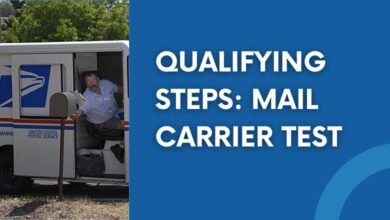Nine Practical Tips to Choose the Right Book Editor

Completing your manuscript is a feeling that cannot be put into words. The closest someone can get to describing it is by saying that it feels like a huge burden has been lifted off of your shoulders. But before you can take a sigh of relief, the next big challenge surrounds you.
Now, it is time for you to find an editor who can help you improve your work and make you more confident about reaching out to a literary agent.
While everyone understands how an editor can improve their work, few know how to find the ideal editor for their work.
If you are also facing the same question, here are some practical tips that can help you.
1. Know Your Editing Needs
Before you find someone who can improve your work, you must take some time to consider the aspects you need the most help with. Do not rely on an editor as if they are superior human beings with magical powers. They also need to know what you need help with in order to help you.
Do you feel a stronger need for developmental editing, or is there more room for improvement through proofreading? Understanding your weak points can help you find the best book editors who excel in those areas and improve your work.
2. Check Their Experience
An experienced editor is likely to be more reliable. They know how to access a manuscript and work on it to boost its potential. When you are looking for an editor, do not just hire anyone with experience in editing. Instead, try to find an editor who has experience in your genre.
Do not just take their years of experience as gospel. Before hiring them, ask for a record of their successful projects and satisfied clients. This will help you feel more confident about making the right choice for your work.
3. Review their Portfolio
A great portfolio is a major factor that distinguishes any other editor from a brilliant editor. A portfolio is essentially a compilation of a professional author’s academic and professional materials. It reflects on their skills, education, training, and experiences.
You can ask the editors who are interested in working with you to share their portfolio. The samples attached in their portfolio can help you assess their editing skills and quality of work to make your final decision regarding trusting them with your work.
4. Check Reviews and Testimonials
Every editor may claim to offer excellent services, but you do not have to take their word for it. You are about to trust someone with months or years of hard work, so it is okay to ensure your mental satisfaction before proceeding.
You never have to hold back from asking a potential editor to share references from their past clients. In addition, you can also check their online reputation and see what their past clients have to say about their experience with the certain editor.
If the editor you are considering has several bad reviews, they will likely not be able to provide you with a different service. Hence, it is best to look for other options.
5. Hold a Detailed Discussion
As mentioned earlier, you do not have to take your editor’s word for everything. It is better to be involved in the process right from the beginning. You can hold a detailed meeting with your book editor before they start working on your manuscript.
Among several other important things to discuss, make sure that you talk to them about their workflow. Discuss their timeline and make sure that it aligns with yours so that you meet important deadlines together and stay on track with your publishing schedule.
6.Communicate Payment Terms
It is important to clarify pricing and payment before starting a professional working relationship with your editor. You do not want to have problems because of miscommunication in money-related matters later in time.
You must ask the potential editor about their service charges and payment structure right away. Instead of making a verbal agreement, draw a formal contract agreed on by both parties.
You can mention all the important aspects of your working relationship in the contract, including any additional fees, revision terms, or charges for expedited services.
Read also What Makes Your SEO Strategy Powerful?
7. Clarify Your Expectations
Even if you want to give your editor space so they do not feel rushed into completing your task, you still must have some expectations. Too much leniency in your conduct can cost you delayed projects and missed publishing deadlines.
It is best to outline your expectations, deadlines, and any specific guidelines for the editing process right from the start. This practice can ensure that problems are not caused later because of miscommunication between you and your book editor.
8. Assess Compatibility
You do not want to hand over your manuscript to someone who has different beliefs or ideologies than you. Anyone you trust with your work must be on the same page as you and help you boost its potential instead of going in the opposite direction.
Try to find an editor with whom you have a good rapport and effective communication to ensure a smooth, professional partnership. This ensures a smoother collaboration and allows both of you to head in the same direction with unanimous goals.
There are so many worries for an author to deal with, and having an incompatible editor by their side should not be one of them.
9. Trust Your Instincts
No one works with an editor without reviewing their qualifications, certifications, or affiliations with reputable organizations. Accessing all of these factors can tell you a lot about the choice that you are about to make, but this information is not all you need.
When selecting an editor, you must trust your instincts and choose the one who is a good fit for you and your book. If your gut feeling tells you not to work with a certain editor, take a step back, consider other options, and then make a final call.







